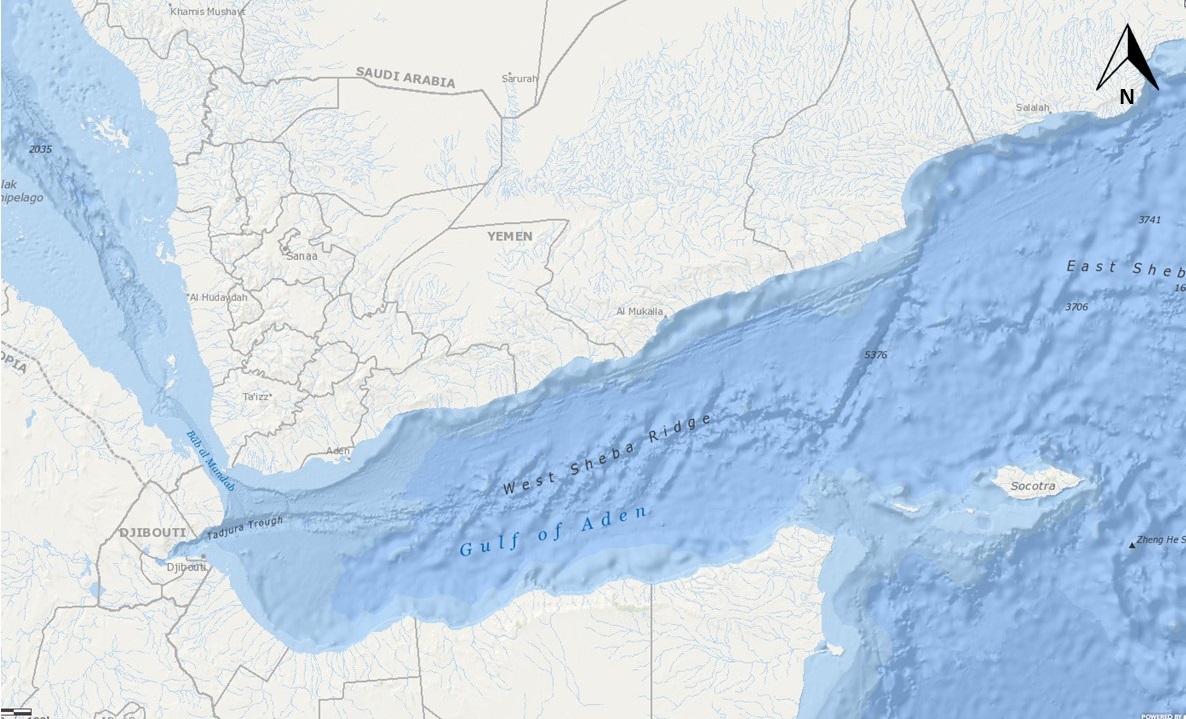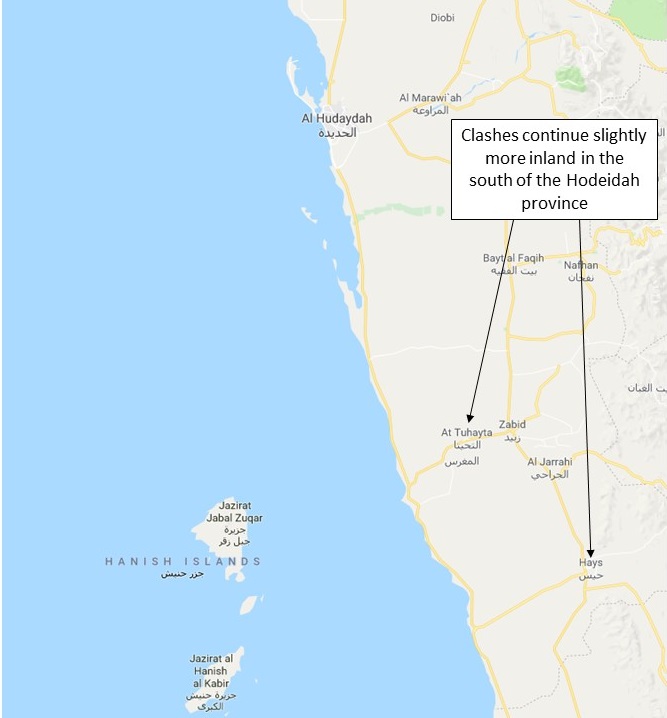Indian Ocean HRA Overview
- No significant incidents to report this week
The tactical situation across the Indian Ocean High Risk Area (HRA) remains the same in terms of the threat of piracy and armed robbery. The reporting period (12 – 19 July) has remained quiet with no confirmed piracy incidents to report.
At present the Southwest Monsoon is influencing the Indian Ocean, characterised by storms and strong winds. Therefore, activity reported most recently has occurred in more sheltered areas such as the Bab-el-Mandeb Strait where skiffs are able to operate. Reports have indicated that Somali pirates may use the monsoon as cover for attacks against merchant ships in areas such as the Gulf of Aden where weather conditions are not as severe. The current assessment is that piracy attacks will remain sporadic and at a low level.
Reported Incidents HRA
No incidents to report during the reporting period (UKMTO)
Yemen
Hodeidah Offensive Update
The coalition offensive on the port city of Hodeidah came to a halt last week, the battle was paused at Hodeidah’s airport which lies in the south of the city. Clashes however have continued in the south of the Hodiedah province. An offensive was launched against Houthi rebels in Al Tuhayta and Hays. The ongoing conflict on Yemeni’s west coast continues to pose a threat to maritime shipping in the region.
Somalia
Al Shabaab continue to be increasingly active in Somalia. The militant group has been battling the Somali Federal Government (SFG) in an effort to govern Somalia. Since 2013, al Shabaab pledged allegiance to al-Qaeda attracting the United States to execute raids and airstrikes against the group. However increased US airstrikes have not enabled African Union Mission (AMISOM) and Somali security forces to gain enough momentum against the terrorist group as al Shabaab has yet to have suffered any great loss of territory or significant casualties from the airstrikes. Al Shabaab continues to maintain strongholds in southern and central Somalia and continue to carry out attacks against military and civilian targets.
Somalia is a country whereby tribal loyalties are stronger than national ties which have hindered efforts to strengthen unity. Terrorist groups and clan divisions mean that the SFG and Somali forces lack legitimacy outside of Mogadishu. Further to this, al Shabaab further exemplifies the issue of famine, terrorism and corruption making the prospect of stability in Somalia in the near future bleak. Al Shabaab is likely to maintain its present operational tempo in 2018 which leaves huge challenges facing Mogadishu meaning international efforts to stabilise the country will continue for years to come.
Piracy Activity
Until the deep rooted issue of piracy in Somalia are resolved, piracy will continue to be a threat. In recent times Somalia has suffered some of the worst famines in 40 years, this coupled with the struggling government and extreme militant violence has brought millions of people into crisis. Pirate financiers capitalise on the chaos offering opportunities to local people. Somalia has the second-longest coastline in Africa which is largely unregulated. Pirate groups are known to operate in the coastal regions of Puntland namely Eyl and further south in Galmudug namely Hobyo. It is needless to say, as instability in Somalia continues, it will serve as a permissive environment for piracy operations serving as an ongoing threat to shipping in the region.


